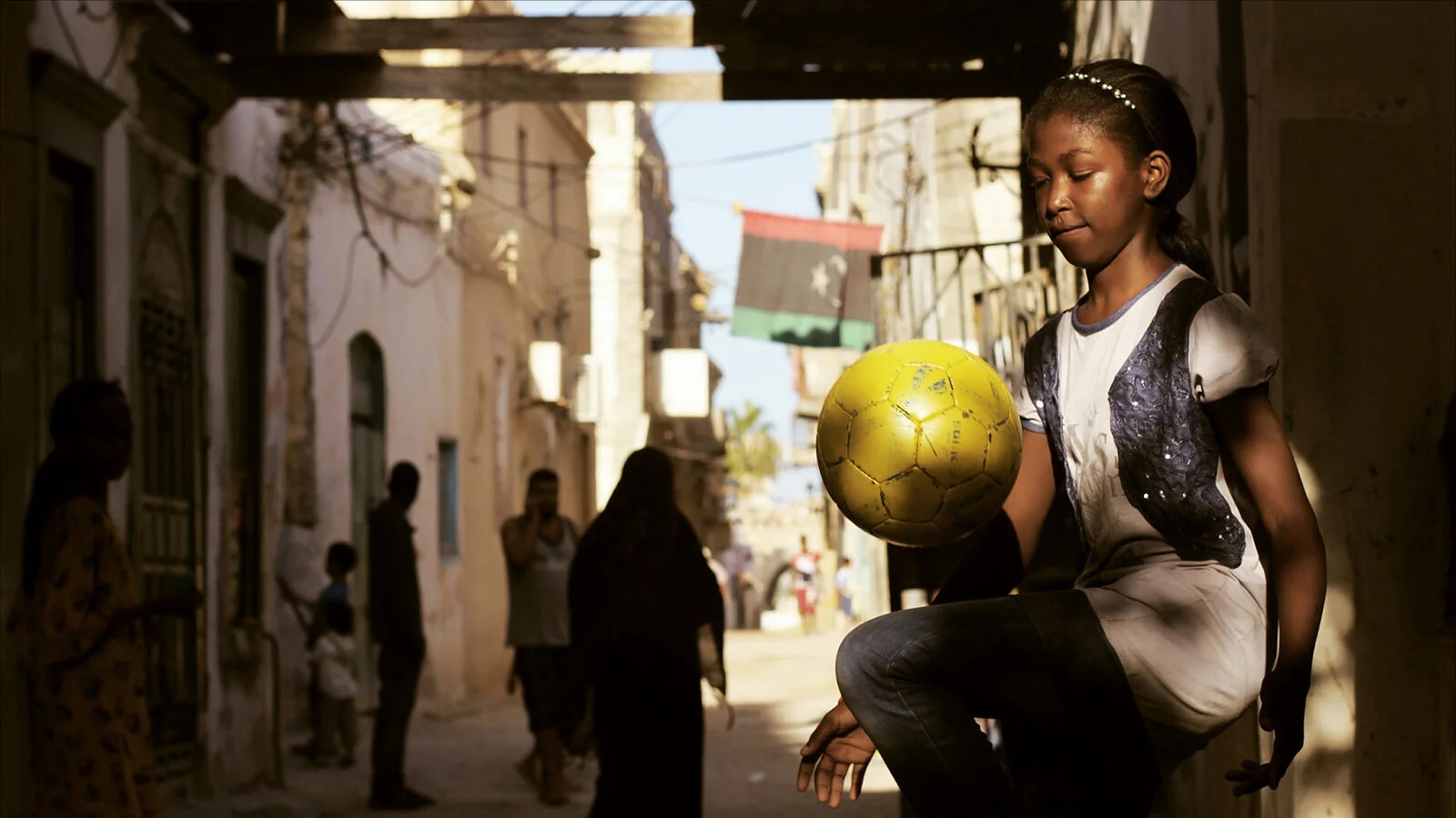Freedom Fields
A film which sadly illustrates that being heartfelt is not enough.
Ironical as it proves to be, Naziha Arebi's documentary about Libya opens with scenes in which what is said somehow sounds scripted. That may not have been the case but the words heard seem prompted, a form of dramatisation to convey information to the audience. In contrast to that, however, the rest of the film for all its good intentions lacks any sense of its realities being properly structured as is necessary if authenticity is to be rendered effectively.
On paper, Freedom Fields is highly worthwhile: a female filmmaker, deeply committed to the project which marks her debut, offers us a lament for Libya in the form of a chronicle filmed over five years. At heart, it is saying that, whatever hopes existed on the fall of President Gaddafi in 2011, the revolution that occurred then has yielded only an illusory freedom. Arebi illustrates this by concentrating on the frustrations and the opposition (overt by religious authorities, disguised on the part of the Football Federation) which have affected a group of Libyan women seeking to play football as a professional national team. Describing the film in these terms could make it sound like a movie centred on sport, but in reality the plight of these women reflects the wider situation of Libya's female population and that in turn is seen as dire enough to be representative of life in Libya generally.
Given the aims of Freedom Fields, it is sad to have to declare that what was filmed over those five years from 2012 to 2017 comes across so ineptly on the screen. Arebi chooses to a large extent to focus on four of the women: Fadwa, Halima, Nama and Somaya. Had they told their own stories, the film could have been compelling, but for that they and their families would need to be identified clearly, just as their individual tales cried out to be cohesively presented. Unfortunately, although we hear their names in passing, even remembering which is which is not easy because Arebi jumps around loosely from one to another while at the same time following the team as a whole. Problems encountered by the group - not least when hoping to play abroad - do come across here, but there's no overriding commentary to shape the material and to put it all fully into context. Indeed, I have rarely seen a film in which the visuals include so many panning shots and sudden camera movements which fail to relate meaningfully to what is being said in the individual women's voice-overs that accompany them.
In the last quarter of an hour sports fans will find footage of matches, but even when the team starts to function privately, the games seem to yield disappointing results for them. As though to compensate, the late sporting scenes are accompanied by vocal music on the soundtrack. The women of Libya deserved better than this.
MANSEL STIMPSON
Featuring Fadwa, Halima, Nama and Somaya.
Dir Naziha Arebi, Pro Flore Cosquer, Screenplay Naziha Arebi, Ph Naziha Arebi, Ed Ling Lee, Alice Powell and Maya Hawke, Music Katya Mihailova.
SDI Productions and HuNa Productions/Creative Scotland-SDI Productions Ltd.
96 mins. Libya/UK/The Netherlands/USA/Qatar/Lebanon/Canada. 2018. Rel: 31 May 2019. Cert. PG.


